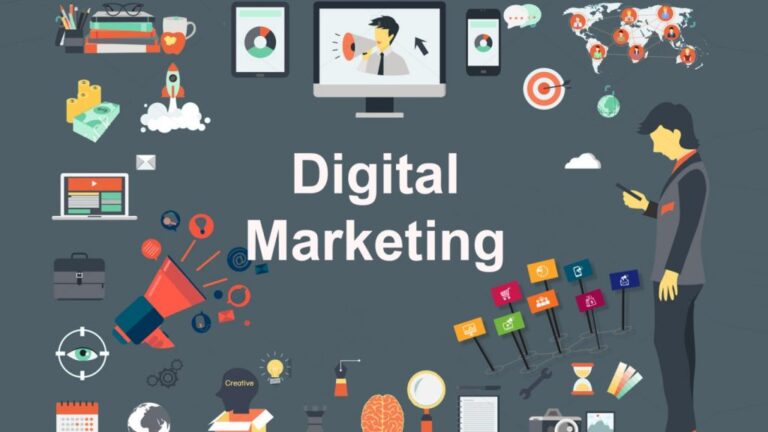Digital Marketing In the era of Technoloy
Digital marketing in the era of technology has undergone significant transformations and advancements. With the rapid development of technology, businesses have embraced digital platforms as essential tools to reach and engage with their target audience. Here are some key aspects of digital marketing in this era:
- Social Media Marketing: Social media platforms such as Facebook, Instagram, Twitter, and LinkedIn have become powerful marketing channels. They allow businesses to connect with their audience, share content, run targeted advertisements, and build brand awareness. Influencer marketing has also gained prominence, where businesses collaborate with influential individuals on social media to promote their products or services.
- Search Engine Optimization (SEO): SEO is crucial for businesses to enhance their online visibility and organic search rankings. As search engines evolve, marketers need to focus on creating high-quality, relevant content, optimizing websites for mobile devices, and improving user experience. Voice search optimization has also gained traction with the rise of voice assistants like Siri and Alexa.
- Content Marketing: Content remains king in the digital marketing landscape. Creating valuable, engaging, and shareable content is essential for attracting and retaining customers. Blog posts, videos, infographics, podcasts, and interactive content are all part of an effective content marketing strategy. Personalization and storytelling play a significant role in capturing audience attention and building brand loyalty.
- Video Marketing: Video content has become increasingly popular, with platforms like YouTube and TikTok dominating the digital space. Video marketing allows businesses to deliver their messages in a visually appealing and engaging format. Live streaming, webinars, and product demonstrations are effective ways to connect with audiences and showcase products or services.
- Data-Driven Marketing: The era of technology has given rise to an abundance of data, and marketers can leverage it to gain valuable insights. Analytics tools provide information about user behaviour, preferences, and engagement metrics, enabling businesses to make data-driven decisions. Personalization and targeted marketing campaigns based on user data help improve conversion rates and customer satisfaction.
- Mobile Marketing: With the widespread use of smartphones, mobile marketing has become essential. Optimizing websites and advertisements for mobile devices, creating mobile apps, and utilizing location-based marketing strategies are crucial for reaching and engaging with on-the-go consumers.
- Artificial Intelligence (AI) and Automation: AI-powered tools and automation streamline marketing processes. Chatbots provide instant customer support, AI algorithms optimize ad campaigns, and machine learning analyzes vast amounts of data to identify patterns and predict customer behavior. Automation helps in lead nurturing, email marketing, and social media scheduling, freeing up time for marketers to focus on strategy.
- Privacy and Data Protection: With growing concerns about privacy, data protection regulations such as the General Data Protection Regulation (GDPR) have emerged. Marketers must adhere to ethical practices, obtain proper consent for data collection, and ensure secure handling of customer information.
In summary, digital marketing in the era of technology encompasses a wide range of strategies and tools. By embracing these advancements and staying abreast of the latest trends, businesses can effectively reach their target audience, drive engagement, and achieve their marketing goals.

